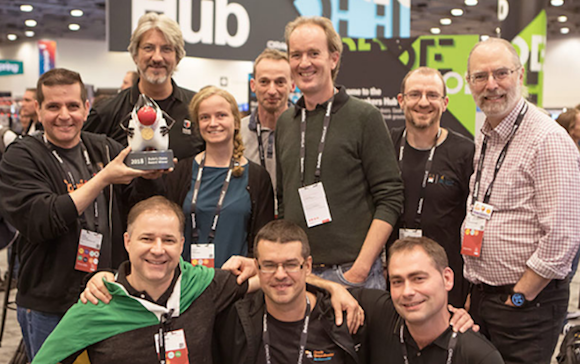Oracle looks to holy trinity of open positives
Oracle may not always be viewed positively in open source circles, the company’s approach to Java and wider open platform still draws headlines a decade after it took up a position of stewardship over the Java platform and language in line with the acquisition of Sun Microsystems.
Looking to highlight more positive angles in terms of Oracle’s open universe this month is the company’s David Cabelus in his position as senior principal product manager for developer services.
Cabelus notes the continued adoption of DevOps and Kubernetes and says that the notion of simplified and combined deployment is what spawned the Open Service Broker API project, which provides a consistent model for exposing cloud services to applications and application deployment tooling.
What are service brokers?
Service brokers manage the lifecycle of services — so this means that platforms interact with service brokers to provision, get access to and manage the services they offer. The Open Service Broker API defines these interactions and allows software providers to offer their services to anyone, regardless of the technology or infrastructure those software providers wish to utilise.
The newest service broker is an implementation of the Open Service Broker API for use in a Kubernetes cluster and for use with Oracle Cloud Infrastructure services.
“It simplifies access to Oracle Cloud Infrastructure services, including new services like our Autonomous Databases, which can be a highly scalable, automated, self-tuning backend for microservices and containerised applications,” said Cabelus.
He notes that service brokers enable application portability, too.
“The combination of a consistent model and embedding cloud service provisioning within an application deployment process means that when you deploy your application in a new cloud environment, it has everything that it needs to run. This is true for dev-test-production progressions, and for on-premises-to-cloud migrations,” said Cabelus.
Oracle’s open faction has also pointed to work highlighted at the recent KubeCon + CloudNativeCon Europe 2019 in Barcelona.
In a similar vein, the company highlighted the open sourcing of Oracle Cloud Infrastructure Service Broker for Kubernetes.
This includes a recent set of Oracle open source solutions that facilitate enterprise cloud migrations including Helidon, GraalVM, Fn Project, MySQL Operator for Kubernetes and the WebLogic Operator for Kubernetes.
In addition, the recently launched Oracle Cloud Developer Image provides a development platform on Oracle Cloud Infrastructure that includes Oracle Linux, Oracle Java SE (includes Java 8, 11, and 12), Terraform and many SDKs.
A holy trinity of forces
Could we be seeing a coming together of forces (for the greater good) when we consider where development goes next?
Oracle suggests that a holy trinity of forces (DevOps, cloud-native, open source) could be pushing us towards a cultural change in software programming where complexity is more managed and functionality is more controlled.
Oracle may not be every developer’s favourite and will (most likely) never be regarded as a real open purist (some might say, well look at Red Hat, who is these days?)… so it’s important to look past the corporate showboating that features so prevalently at its big events and read into the developer blogs.




